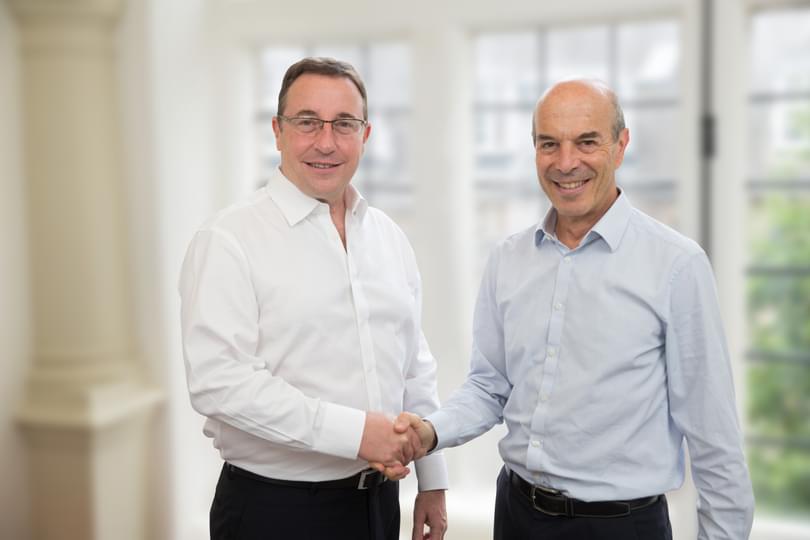
On 1 September I step down from my role as the Founding Director of the Oxford Martin School. This job has been the most enjoyable and stimulating of my career, thanks to the wonderful academics, colleagues, donors and interlocutors I’ve had the good fortune to work with.
As I hand over the reins to the School’s new Director, Achim Steiner, I have been reflecting on the past decade. Ten years ago the Oxford Martin School, then named the James Martin 21st Century School, was a start-up. There was no real infrastructure, and one of the first tasks was to secure us a temporary office. Despite having been a student at Oxford I was essentially an outsider, and to an outsider Oxford is an incredibly complex place. Being the new kid on the block in an institution that is 900 years old was a daunting situation to be in.
Fortunately for me, our Founder, James Martin, was an extraordinarily far sighted and inspirational man. He was a true visionary: his book, The Wired Society, foretold the impact of the digital age long before anyone else, and he saw the risks of extremism, climate change and resource depletion with a greater clarity than anyone I had met. Jim was also extremely practical, and determined to bridge the gulf between ideas and action by creating a place where top class academics could combine their diverse expertise and apply it to the seemingly intractable problems that humanity faces. The idea of an ivory tower was anathema to him - his motto was ‘solutions, solutions, solutions’ – and he knew that to solve these problems the School would not only need to bring the best minds together but also to engage with the world outside Oxford.
Jim’s commitment and investment enabled us to make real his vision in the heart of Oxford. I felt very supported by him but at the same time was conscious of his high expectations of the School. I am confident that over these ten years we have laid the foundations for achieving these bold ambitions, building and embedding a permanent platform for interdisciplinary research. Over the past decade, the School has brought together over 500 academics drawn from around 100 disciplines, to work on many of the critical challenges of the 21st century. Our researchers have won numerous accolades, and academic excellence has been combined with deep engagement with decision-makers in business, government and national and international organisations, and with the public at large. As part of this the School has become a hub for rich debate, with over 20,000 people attending our hundreds of events over the past ten years. Reflecting our aim to reach far beyond Oxford, the report of the Oxford Martin Commission for Future Generations, Now for the Long Term, has been viewed more than a million times in over 170 countries.
A large part of my enjoyment of this job has been getting to know our academics, and seeing their work in action. As an economist I hadn’t been exposed first-hand to the progress taking place in science and medicine. This learning experience has been fascinating for me, and has changed my understanding of how the world works, particularly in relation to technological change. Hearing the optimism voiced by those working at the cutting edge of research – be it in nanotechnology, stem cells, cyber security or pandemics - gives me confidence that we really are narrowing the gap between knowledge and action when it comes to tackling global challenges.
But I am acutely aware that the challenges humanity faces are continuing to grow and become more complex. The past decade has seen many changes: the financial crisis, the rise of social media, the resurgence of extremist politics. Our world is now hyper-connected, leading to the rapid spread of the harms as well as the benefits of globalisation. In my view the scale and complexity of the challenges underline the importance of the School and its approach, and make its work more significant than ever. Academics have always been part of the transformation of societies, and Jim would have wanted us to do more, to work harder and engage further, in order to find those solutions to the problems about which he was so passionate.
In Achim Steiner the University has found someone to whom I feel very glad to be handing over the reins. I know that he will provide inspiring leadership and take the School to even greater heights. The small but effective central team will help him to do this, and I am most grateful to them, as well as to our academics, management and advisory committees, donors and all the other many individuals whose guidance and professional and personal support have been instrumental in making the School a success.
My hope for the School is that it continues to contribute in a meaningful way to solving the problems our world faces. I know that Jim would have been proud of what we have achieved to date, and that his vision will continue to inspire the work of the School as it embarks on this new chapter.
This opinion piece reflects the views of the author, and does not necessarily reflect the position of the Oxford Martin School or the University of Oxford. Any errors or omissions are those of the author.
